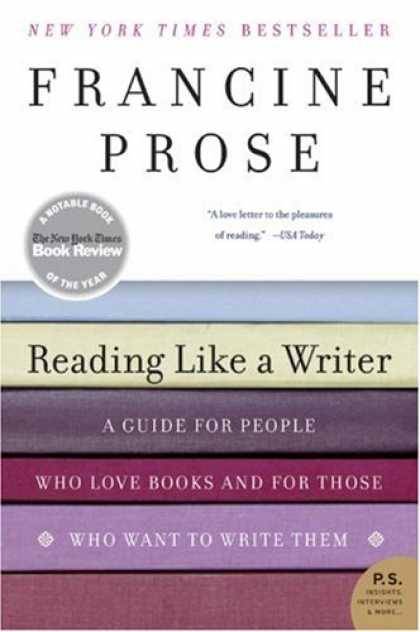For the beginning of this robot series, I wanted to discuss the field I probably know most about: education. Not specifically about robotics and education, or robotics in education, however. When on that topic, many commentators and news articles focus on the use of robotics to get kids involved in scientific endeavours or as novelty 'experiments'.
Today, the Wall Street Journal released a piece about robots as teachers.
No, I'd rather distill all of my ages upon ages of research in the topics of AI, robotics, automation and all things futuristic into a crystal clear opinion about the future of education. And why current public education systems are stuck in the past. I'll start at the optimum point of departure: my education. The one I know best. I'll take it as a case study.
Case Study: A Young Teacher's Education/Education in the Present/Past
Elementary

A little background. Grade school in the late eighties and early nineties in a publicly-funded elementary school down the road from where I grew up. Endless lessons in printing and cursive writing, none of which I use anymore for anything other than signing cheques and self-amusement (i.e. writing certain fictional things long-hand -- although now that I come to think of it I even type the most private of journal entries nowadays. Writing just cannot keep up to the speed of my thought. Typing comes much closer). What else did I learn in those long days? I remember choosing books for independent reading that were far beyond my grade level and when it came to computer time, there was an ancient that involve a virtual turtle on a green and black screen that was controlled with keystrokes and a trackball. Logo I think it was called?
In sum, I learnt how to interface with the written word. I learnt social avoidance, arcane skills that I no longer use, and some basic math. I think there was something about religion in their that I've largely forgotten and that I despise gym (especially dodgeball).
Secondary

In high school, I took a course in keyboarding as well as a whole bunch in computer programming. Now, granted, I did learn during those grungy years of the mid- to late nineties how to interface with computers. How to use them effectively and a little teeny bit about Java and Visual Basic. (don't ask me any probing questions, I seriously don't remember how to program a computer. Other than that it's tedious). But a large part of those years was spend retaining useless information. Sure, some folks went on to take English Lit degrees or history degrees or math degrees or biology. But less I become a complete whiner reverting to her 15-year-old self, did I seriously need to know any of that?
But a lot of what I learnt in high school was more about streaming and segmenting us all in preparation for what came next. And the what came next was university: that which I'd been waiting for since elementary school when I first read about Anne of Green Gables going off to a magical place called Queen's College. What I learnt in high school is that I never wanted to go back.
 Post-Secondary
Post-Secondary
So onto university. In university I learnt the fundamental skills I probably should have been introduced to years before. The Basics. In C++ class I learnt that I would never be a computer programmer. In intro, mid-level and advanced philosophy I learnt how to think logically, how to construct an argument, and how to write a paper using personal pronouns. In poetry class I learnt how to put all that aside and express myself.
Professional
Here comes the crux of the matter. After my undergrad I took my savings from four years of three part-time and summer jobs that I had tucked away after tuition was paid and happily spend every last penny on Teacher's College. I was fortunate in my choice of programs, however, in that that particular school required every student to purchase a lap top from them. The hulking brick of a widescreen computer was to be integrated into every lesson and every activity that we did during the eight month program. It was a good fit for me, given my background...and I was even given a job as a computer assistant for my class of 29 future elementary school teachers. There was meant to be two per class.

In some courses such as Teaching Early Literacy, the professors were great at integrating the computers. (although to be bluntly honest most of us were distracted from the power point presentation by gossiping on MSN messenger) and in other courses, such as teaching music, we barely looked at the computers. But in every single class, without fail, I would field multiple questions about the beasts (this was back in 2005-2006 and all I remember is a big slow thing with a loud fan). Some students my own age were unfamiliar with the concept of a mouse or how to type beyond hunting and pecking. I was gobsmacked and wondered how they'd made it through their respective undergrads...
Picking apart the Case Study
The point of all this is that I did and did not have a typical North American school-going experience for someone of my age. It was typical in the way 'core' subjects such as reading, writing and math were taught. Indeed, I would argue that teaching trends and differing theories aside (Phonics or not, traditional math or not...) it was pretty typically of the way every child in each and every publicly-funded school on this continent, broadly speaking. It was not typical in terms of the 'specialize' subject of evolving technology and my learning through it and with it.
It is 2013. But learning being interfaced with information technology is still a 'specialty'. Through the latter part of my education I've heard tons about the information age and how it will revolutionize careers, education, childhood. This is and has happened in every sector except for education. Why is that?
Education of the Present, Education of the Future

I could go on here about the traditions in which western education is grounded. I could tell you how the ideas of a liberal arts education, founded as they upon the idea that those in school are only male upper class 17-century Brits and have nothing to do with the here and now of my North American context. But let's put all that aside for a moment and leave it to educational theorists.
Instead I want to talk about the past, the present, the future and where our attitudes about these things go horribly. First, an anecdote.
When I was in teacher's college, part of our training was a practical component. My first stop was a kindergarten classroom. My favorite school-going age: every one a little philosopher, every one comes to school (almost) wholly themselves before society begins to leave its mark. I was in that class for the beginning of school, and had a special glimpse into the skills that the children brought with them to an inadequate public education system. One little boy came to school already knowing how to type on a keyboard, and all he wanted to do was go to the computer and type up surveys that he would then print out and deliver to his classmates as they played. He could type faster and with more accuracy than his 55-year-old teacher. Remember, this was back in 2005. Which means that he and his advances set of technology-interfacing skills are now 12. Meanwhile, most likely his kindergarten teacher is still teaching four-year-old who possibly, use and are exposed to technology more often than she is.
The point here is not that age makes the difference. I would not want to argue that since advances in GUI have reached a point at which anyone at any age can, possibly, adopt effective use of things like tablet computers, smartphones, etc. The point here is that in this day and age of the integration of technology in so many people's private lives, we cannot expect children to put aside the tablet they know how to use effectively to sit and cover sheet after sheet with printed S's.
Where does Public Education go Wrong?
In Ontario, where I grew up, there is a discourse of 'business' in public education. Children are our greatest resource, it goes, and the aim of public education is to form future workers. Future efficiency workers who will help our economy.
I'm sure you may have heard it before, and most recently from President Obama trying to justify spending on education to a public nervous about the economy and scrutinizing spending. The rhetoric is debatable but I'll take it as a given for the purposes of this blog post.
But if we take it as a given that the point of public education and spending on it is to create contributing future workers, why the heck are teachers still teaching branches of knowledge that are useless to most of today's workers, not even touching the workers of tomorrow?
The Solution?

It is as impossible for me to know, even with my research, how information technology will evolve. We cannot yet see the new fields of employment will arise as time rolls on. But we can know two things fairly: which fields are likely to disappear due to increasing automation, and which skills will always be added value for humans.
The first we can know from researching the leading edge of emergent technologies. The second we can know from thinking about the ways we use and interface with information technology. Which is about just that: Information. I am not asserting that every kid be taught computer programming, that would be silly. But reading and writing are still as useful a skill as ever, and printing is not so much. Reasoning and creative problem solving, these things are important as well. Interpersonal skills -- something I've never been taught. This lessons do not necessarily have to be off-loaded onto elementary-level students, but it is a shame that currently the "basics" are not taught to students until after public education is over -- if ever.

I think the version of education I envision which is most conducive to the future is one is which every teacher is required to possess functional technological literacy. It is one in which learning is not just loved for learning's sake, but for discovery's sake. And one in which students are equipped to adapt and thrive in an environment in which ever-changing information technology wraps around our social and work-worlds. If such a change does not occur, I'm afraid that teachers in the near future, like the main character in my upcoming novel, will be easily surpassed by robotic doppelgangers.
 But once the basic premise of a novel is established, I usually want to pick tracks to listen to while writing that helps the work along, rather than hindering it. As in, if one is working on a romance novel, one does not really want to listen to a slasher film soundtrack. Or maybe you do if it's I dunno -- some sort of vampire romance silliness.
But once the basic premise of a novel is established, I usually want to pick tracks to listen to while writing that helps the work along, rather than hindering it. As in, if one is working on a romance novel, one does not really want to listen to a slasher film soundtrack. Or maybe you do if it's I dunno -- some sort of vampire romance silliness.
















